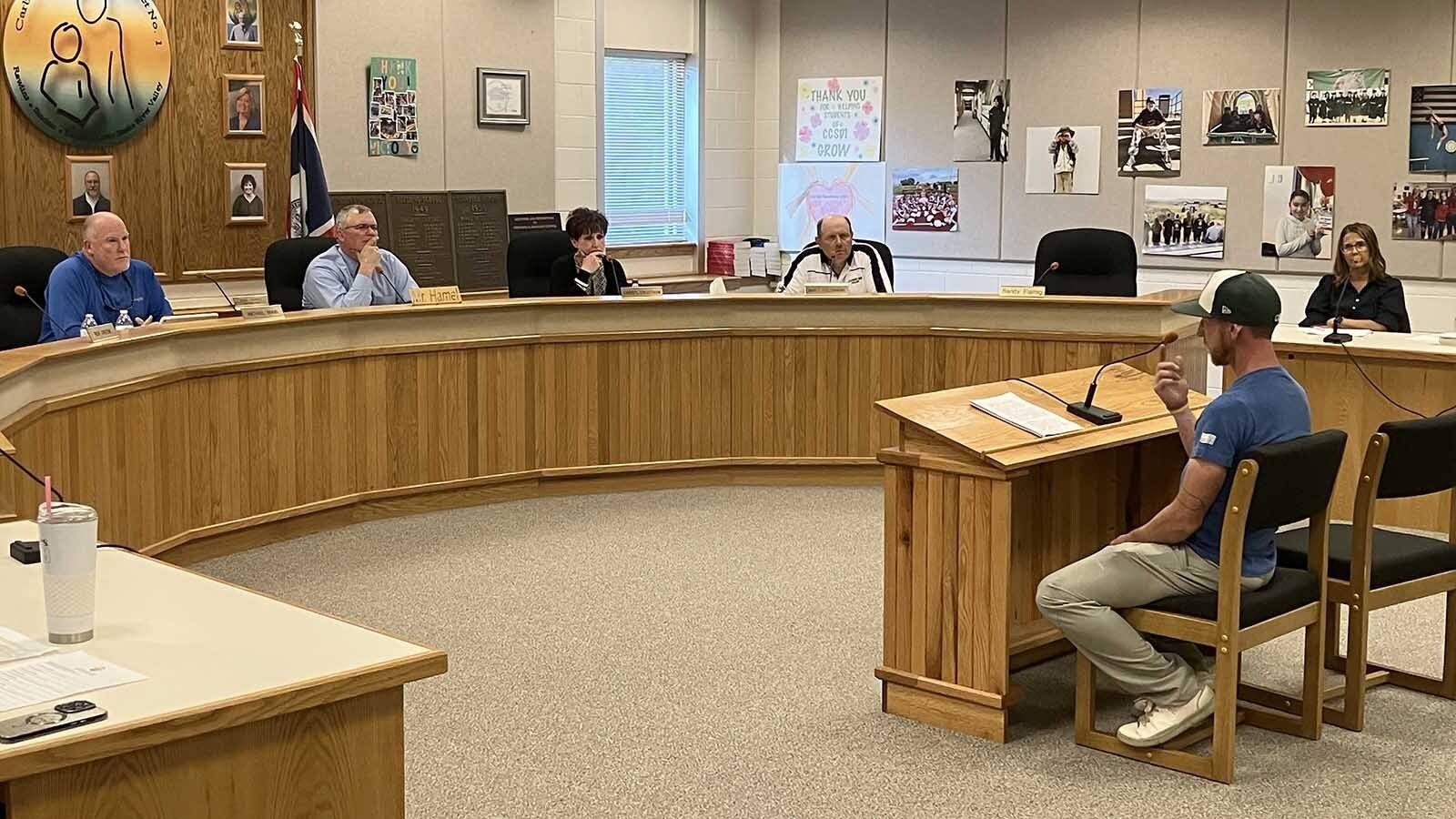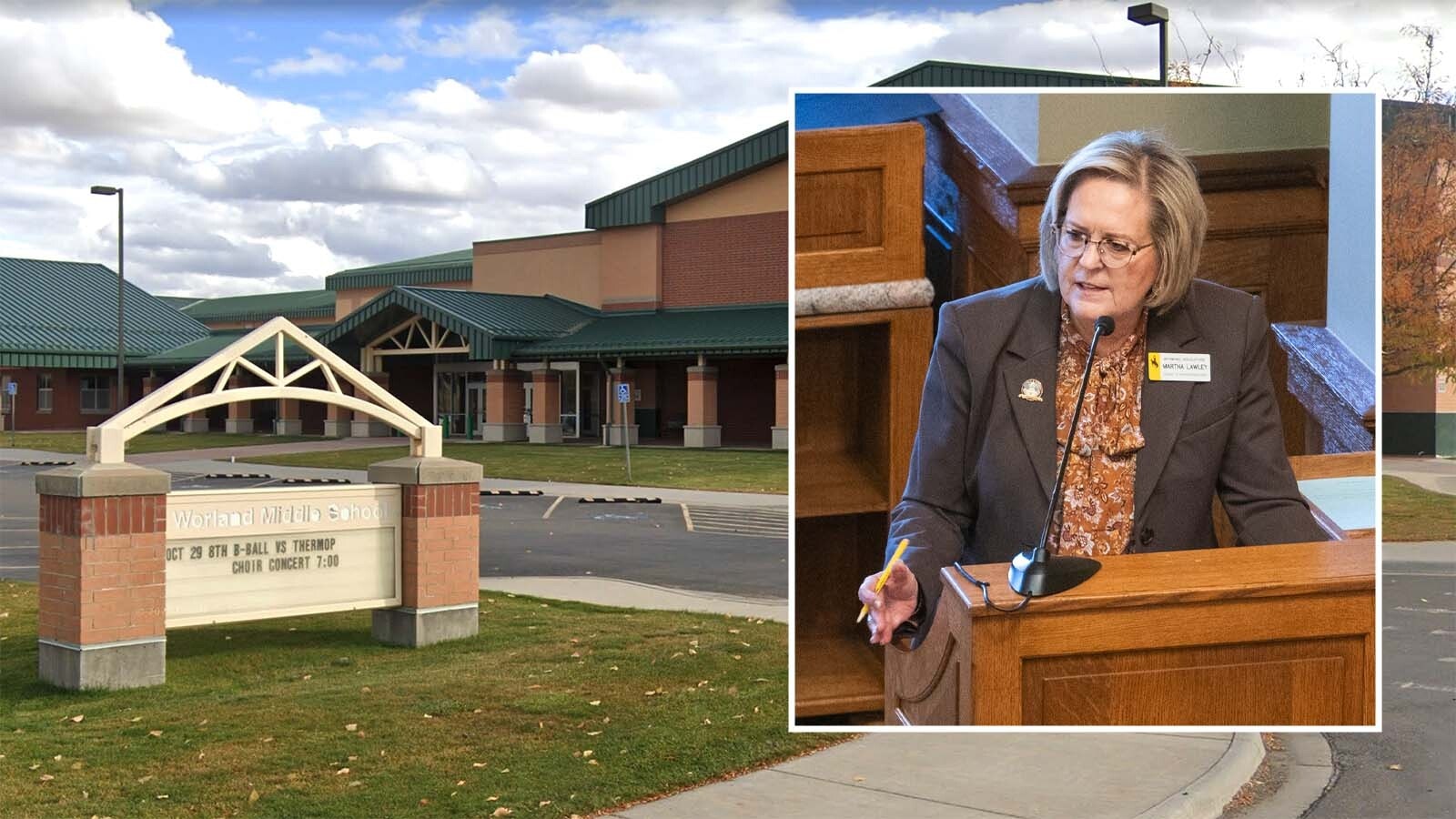Internet crimes against children are on the rise in Wyoming and are focusing on increasingly younger victims, according to authorities.
The increase marks an alarming trend toward the normalization of sexually exploitative behaviors among teens and children that make them more vulnerable to predators, experts said.
Chris McDonald, special agent and head of the Internet Crimes Against Children (ICAC) unit for Wyoming Division of Criminal Investigation, said that the state had another banner year with regard to the numerous cyber tips that he and his team received about potential exploitation of children online.
In 2021, ITAC received more than 600 tips, leading to 33 arrests, compared to 262 tips in 2019 and 531 in 2020. The tips come from social media and internet providers as well as the Center for Missing and Exploited Children and other reporting agencies.
Of the 33 arrests in 2021, many were for producing or sharing child pornography involving 23 live victims who were rescued through law enforcement efforts. Police have also made arrests in cases of adults traveling to have sex with children, as well as cases involving “sextortion” and blackmail.
Staying ahead of the predators
As a father himself and someone who typically would avoid social media, McDonald said that adult oversight is key to keeping children safe. He and his team are seeing an increase in predatory activity on platforms such as KIK, Snapchat and TikTok, as well as in online and multi-player games.
“Everything is happening at the speed of the internet,” he said. “Predators are able to hide themselves. It’s like an arms race any time there is new platform or app.”
While officers can’t control the predators, they can do everything in their power to educate teens about the potential threats and the ramifications of their internet activity and behavior.
Terri Markham sees risky online behavior every day in her role as co-founder and executive director of Uprising Wyoming, a Sheridan-based nonprofit focused on education and raising awareness about human trafficking and other forms of exploitation.
In the roughly three years since she founded the nonprofit, Markham has traversed the state working with law enforcement, first responders and other professionals in the field to raise awareness about the issue and working with teens to teach them to recognize and protect themselves against online predation.
What she’s found in working with teens in the middle and high school levels has alarmed her, both in the number of times teens have been approached by potential predators online as well as their blasé attitude toward sharing nude photos of themselves or their peers.
Markham shared the results of anonymous surveys from workshops with youths age 12 and up from around the state in which 45% reported being approached by a stranger online in a way that made them feel uncomfortable.
In that same group, 15% said they had social media accounts that their parents didn’t know about while 13% said they had sent or received nude photos or videos online.
An additional 8% reported drug or alcohol abuse in their home, which is another vulnerability, Markham noted.
Even more shocking to her was the three disclosures from a group of 12- to 13-years-olds she spoke with recently who reported active cases of sextortion in which someone was threatening to release a nude photo or video of them against their wishes.
Markham said her group learned that children in that age group needed to be equipped with youth critical thinking skills to help them identify when they are in a potentially exploitative situation.
“What we discovered is that we were really a little too late in talking about this topic with this age group,” she said. “It often leads to just giving them the language to describe experiences that had already happened or were happening to them.”
Worse yet, Markham said, is that it’s becoming very commonplace to see younger children, as young as 9 or 10, also sharing nude photos across a variety of social media platforms and apps.
As a result of what Markham and her team were finding, they’ve decided to continue focusing these workshops with youth across the state in order to help mitigate these dangerous behaviors that make them particularly vulnerable to predators.
“It’s becoming so normalized that it’s getting easier for predators to exploit these children,” she said. “They are growing up with this and thinking it’s normal.”
Along with offering training for children, educators, law enforcement and other professionals, Uprising also conducts training sessions for parents and care givers to make them aware of the problem while giving them tools to help keep their children safe.
“We’re all about risk reduction,” she said. “Both immediate and long term. We want to let kids know that these images can come back to haunt them and how important it is to report it instead of just re-sharing or not staying anything. That’s where it starts. Risky behavior leads to other risky behavior when a stranger comes around.”
Like Markham, McDonald focuses a lot of his time doing in-class presentations throughout the state.
“We can’t get rid of it all,” he said, “so we have to figure out how to help the kiddos protect themselves online.”
For more information about this issue and opportunities for education and training, contact Markham at Uprising Wyoming. Additional resources include Thorn.org and Center for Missing and Exploited Children.





